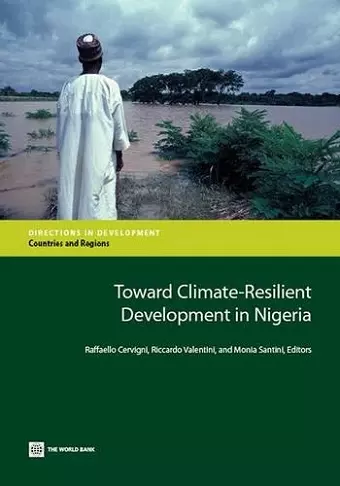Toward Climate-Resilient Development in Nigeria
Raffaello Cervigni editor Riccardo Valentini editor
Format:Paperback
Publisher:World Bank Publications
Published:5th Aug '13
Currently unavailable, and unfortunately no date known when it will be back

If not addressed in time, climate change is expected to exacerbate Nigeria's current vulnerability to weather swings and limit its ability to achieve and sustain the objectives of Vision 20:2020 [as defined in http://www.nationalplanning.gov.ng/index.php/national-plans/nv20-2020].
The likely impacts include:
- A long-term reduction in crop yields of 20-30 percent
- Declining productivity of livestock, with adverse consequences on livelihoods
- Increase in food imports (up to 40 percent for rice long term)
- Worsening prospects for food security, particularly in the north and the southwest
- A long-term decline in GDP of up to 4.5 percent
The impacts may be worse if the economy diversifies away from agriculture more slowly than Vision 20:2020 anticipates, or if there is too little irrigation to counter the effects of rising temperatures on rain-fed yields. Equally important, investment decisions made on the basis of historical climate may be wrong: projects ignoring climate change might be either under- or over-designed, with losses (in terms of excess capital costs or foregone revenues) of 20-40 percent of initial capital in the case of irrigation or hydropower.
Fortunately, there is a range of technological and management options that make sense, both to better handle current climate variability and to build resilience against a harsher climate:
- By 2020 sustainable land management practices applied to 1 million hectares can offset most of the expected shorter-term yield decline; gradual extension of these practices to 50 percent of cropland, possibly combined with extra irrigation, can also counter-balance longer-term climate change impacts.
- Climate-smart planning and design of irrigation and hydropower can more than halve the risks and related costs of making the wrong investment decision. The Federal Government could consider 10 short-term priority responses to build resilience to both current climate variability and future change through actions to improve climate governance across sectors, research and extension in agriculture, hydro-meteorological systems; integration of climate factors into the design of irrigation and hydropower projects, and mainstreaming climate concerns into priority programmes, such as the Agriculture Transformation Agenda.
ISBN: 9780821399231
Dimensions: unknown
Weight: unknown
208 pages